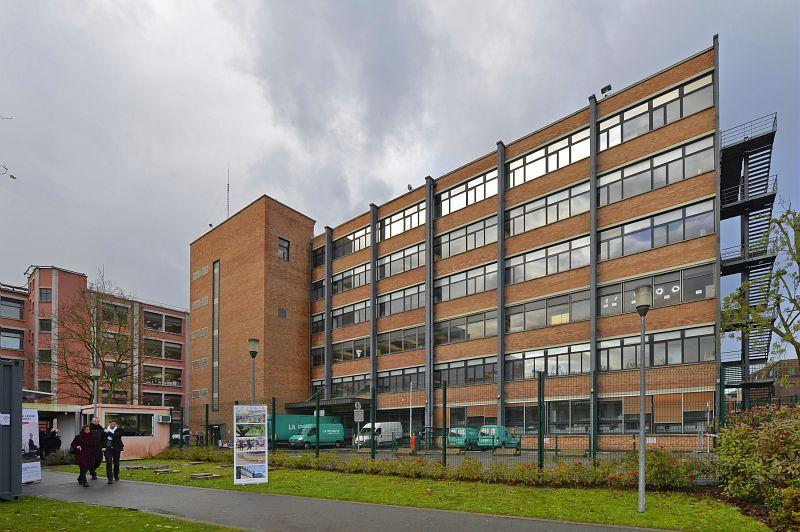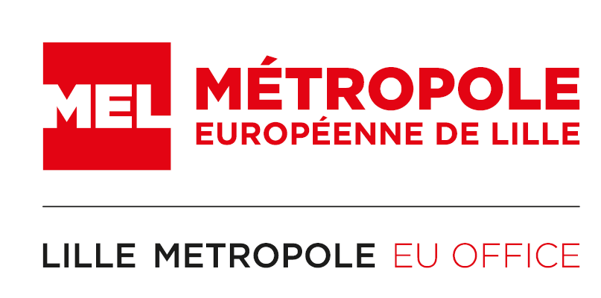Circular Economy

Circular economy
Engraved in its Strategic Project of the Territory Economic Transformation (PSTET), Lille Metropole’s Circular Economy Strategy for 2021-2030 falls in line with the European Green Deal objectives : creating the conditions for an effective and resilient economy by taking part in mitigating the effects of climate disruption and reducing social disparities between territories.
3 key challenges :
- Better design and production
- Less waste and extended life duration
- More sustainability and collaborative work
To do so, Lille Metropole drafted a plan focusing on 5 priority sectors : building materials, food and biomass, textiles, distribution and logistics, household waste. These priorities will be supported by core values like transversality, cooperation and experiments, as well as a broadened European cooperation.
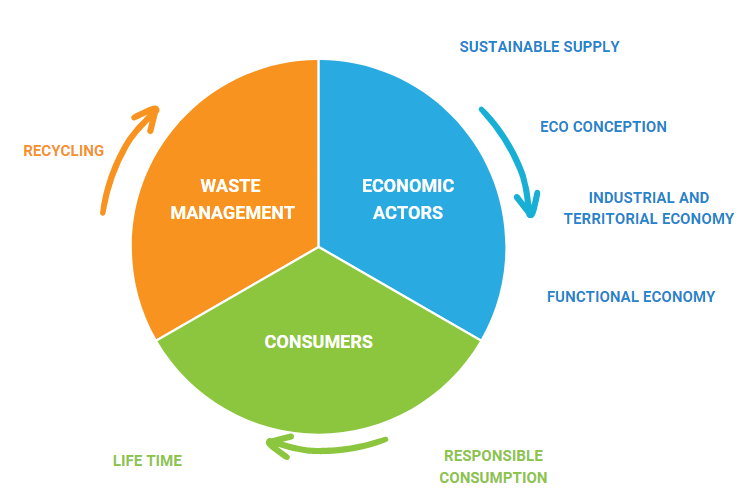
Our projects
EuraClimat
Launched in February 2021, the EuraClimat excellency pole dedidacted to battle climate disruption aims at reducing carbon print within the local economy. This platform created by Lille Metropole to foster cooperation with local economic entities contains two action programs : emphasis on new local projects contributing to adress global warming (1) ; spread of low-intensity carbon activities by working with territorial and thematic clusters such as the textile industry (2). EuraClimat proposes solutions to local enterprises to show the climate benefits of their projects.
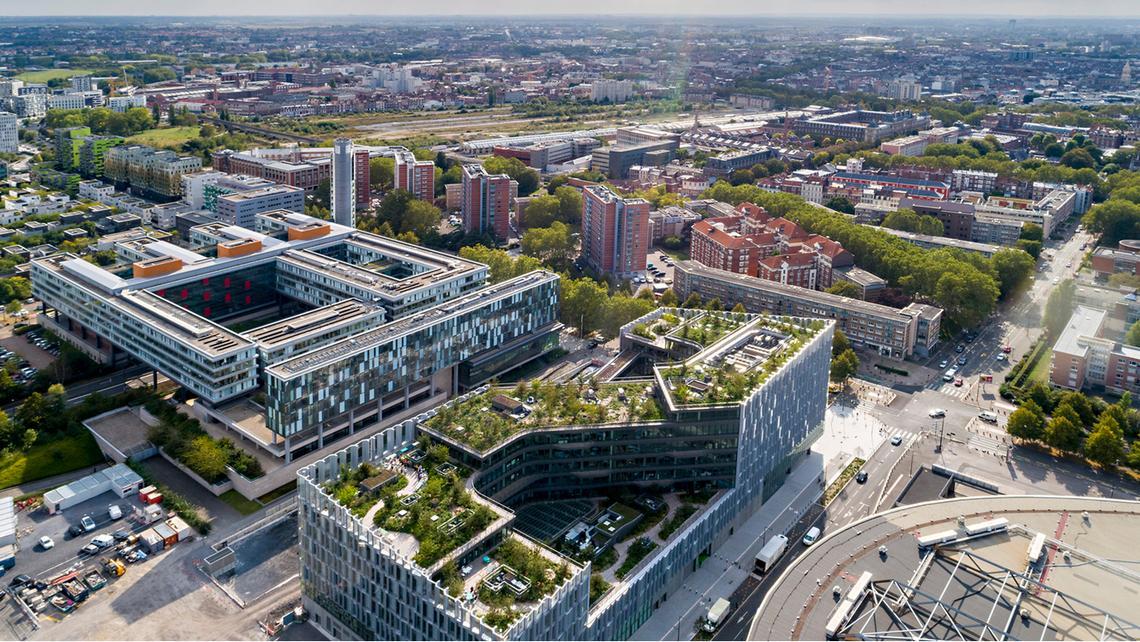
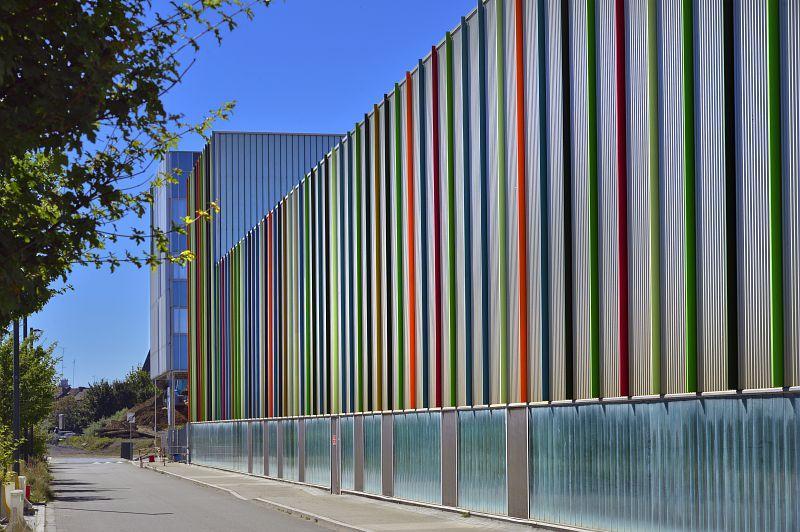
European Center for Innovative Textiles
Based in Tourcoing, the European Center for innovative textiles (CETI) is at the forefront of innovation in the textile industry. By conceiving prototypes and manufacturing news products, materials and processus, it aims to transform the textile industry into a sustainable, recycling and circular economy.
Blanchemaille
Located in Roubaix, the 15 000 sqm building formerly hosting La Redoute headquarters was rehabilitated into a digital and e-commerce cluster. By taking into account the entire life cycle of the building, it is an innovative example on how to reuse building materials efficiently and use digitalization and BIM to manage materials reuse.
This examplary project in resources management during all project’s stages was awarded by several French labels for its eco-conception : sustainable building certification (HQE), working environement quality (OSMOZ) and energy efficiency (BBC-effinergie renovation).
